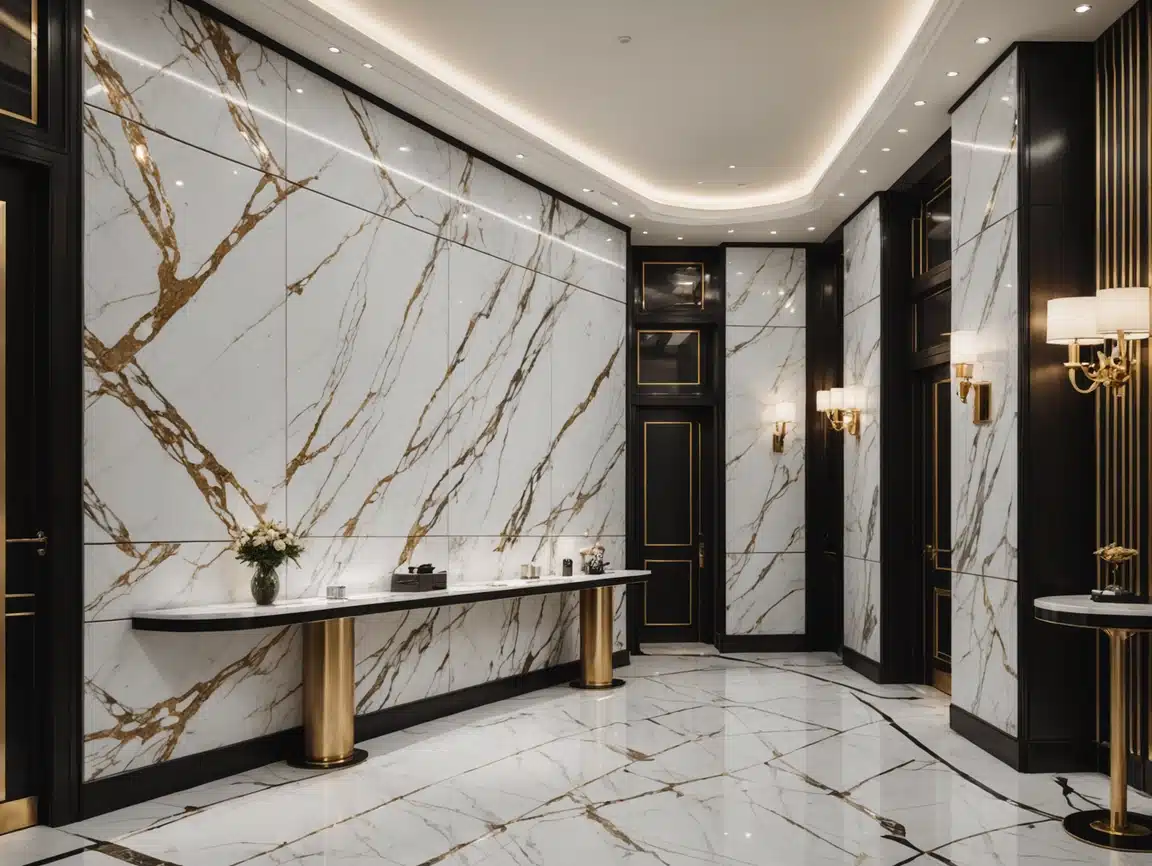How to Insulate Noise in Schools and Classrooms
Noisy classrooms and hallways disrupt learning, lower focus, and increase stress for students and teachers. Studies show that 60% of teachers report noise as a major barrier to effective teaching. This guide breaks down practical, budget-friendly ways to reduce noise in schools—using acoustic panels, smart layouts, and modern materials—so students can learn and thrive.
Key Takeaways
- Top Solutions: Acoustic panels (NRC 0.8+), soundproof flooring, and ceiling clouds.
- Cost: 5–50 per sq. ft., depending on materials.
- Quick Fixes: Seal gaps with acoustic caulk, add heavy curtains, or install door sweeps.
- 2025 Trend: Recycled PET panels and AI noise-monitoring systems.
6 Proven Ways to Reduce Noise in Schools
1. Install Acoustic Panels
- Best For: Classrooms, libraries, cafeterias.
- Materials:
- Fabric-wrapped fiberglass (NRC 0.9–1.0).
- Perforated wood or 3D panels (aesthetic + functional).
- Placement: Cover 30–50% of walls and ceilings near noise sources (e.g., whiteboards, group desks).
- Cost: 20–80 per panel.
Pro Tip: Use colorful panels to double as educational displays (e.g., maps, timelines).
2. Upgrade Flooring
- Best For: Hallways, gyms, kindergarten rooms.
- Options:
- Rubber Flooring: Reduces footstep noise by 70% (STC 55).
- Carpet Tiles: Affordable, easy to clean, and cut echo (NRC 0.6–0.8).
- Budget Hack: Add rugs with thick underlayment (3–10/sq. ft.).
3. Soundproof Doors and Windows
- Best For: Music rooms, labs, offices.
- Solutions:
- Door Sweeps/Seals: Block gaps under doors (10–30 per door).
- Acoustic Curtains: Reduce window noise by 50% (NRC 0.5–0.7).
- Double-Glazed Windows: Cut outdoor noise by 80% (STC 40–50).
4. Use Ceiling Clouds or Baffles
- Best For: Cafeterias, auditoriums, open-plan areas.
- How It Works: Hanging panels absorb echoes and chatter.
- Materials: Fiberglass, felt, or recycled PET.
- Cost: 15–50 per panel.
Case Study: A Texas high school reduced cafeteria noise by 45% using ceiling clouds and wall panels.
5. Optimize Room Layout
- Strategies:
- Place bookshelves or storage units along shared walls to block noise.
- Arrange desks in clusters with dividers for group work.
- Use soft furniture (bean bags, fabric chairs) to absorb sound.

6. Seal Gaps and Cracks
- Best For: Older buildings with air leaks.
- Materials: Acoustic caulk (5–15 per tube) or foam tape.
- Focus Areas:
- Electrical outlets.
- HVAC vents.
- Pipe openings.
Cost Comparison of Noise Control Solutions
| Solution | Cost per Sq. Ft. | Noise Reduction | DIY-Friendly? |
|---|---|---|---|
| Acoustic Panels | 5–15 | 50–70% | Yes |
| Rubber Flooring | 8–20 | 60–80% | No |
| Acoustic Curtains | 10–30 | 40–60% | Yes |
| Door Seals | 10–50 per door | 30–50% | Yes |
| Ceiling Clouds | 10–30 | 50–70% | Moderate |
2025 Innovations for School Noise Control
- AI Noise Monitoring: Sensors track noise levels and alert staff via app.
- Sound-Absorbing Wallpaper: Peel-and-stick panels (NRC 0.4–0.6) for temporary fixes.
- Eco Panels: Recycled plastic or hemp-based materials (NRC 0.7+).
- Quiet HVAC Systems: Low-decibel units with sound-dampening tech.
Case Study: Quieting a Noisy Elementary School
- Problem: Echoey cafeteria disrupting nearby classes.
- Solution:
- Installed ceiling clouds (NRC 0.8) above eating areas.
- Added rubber flooring in hallways (STC 55).
- Sealed gaps around doors with acoustic caulk.
- Result: Noise complaints dropped by 60% within 1 month.

FAQs
Q: How much does it cost to soundproof a classroom?
A: 1,000–5,000 per room, depending on size and materials.
Q: Can plants reduce classroom noise?
A: Yes! Tall, dense plants (e.g., fiddle-leaf figs) absorb mid-frequency noise.
Q: Are acoustic panels fire-safe?
A: Choose Class A fire-rated panels (required in most schools).
Conclusion: Prioritize Learning Over Noise
From acoustic panels to smart layouts, schools can turn chaotic spaces into calm, productive environments. Start with quick fixes like sealing gaps, then invest in long-term solutions like soundproof flooring or ceiling clouds.
Need help? Download our free school noise control checklist or book a consultation with our experts!
Free samples
In recent years, composite products have become more and more popular all over the world. We believe you will also be interested in this new material. If you are interested, you can come to consult us. We have a professional service team that can not only answer any questions you may have but also provide you with free samples. Let you better understand the composite products. There is no doubt that composite wall panels will be the new future.
Share

James is a content creator and decorator with five years of experience designing home decor. In his daily life, james is constantly on the lookout for the latest, great examples of house design and further optimizes his solutions. Additionally, he writes articles related to outdoor design, interior design, and architectural decorating materials to help brands build more engaging relationships with their audiences.




